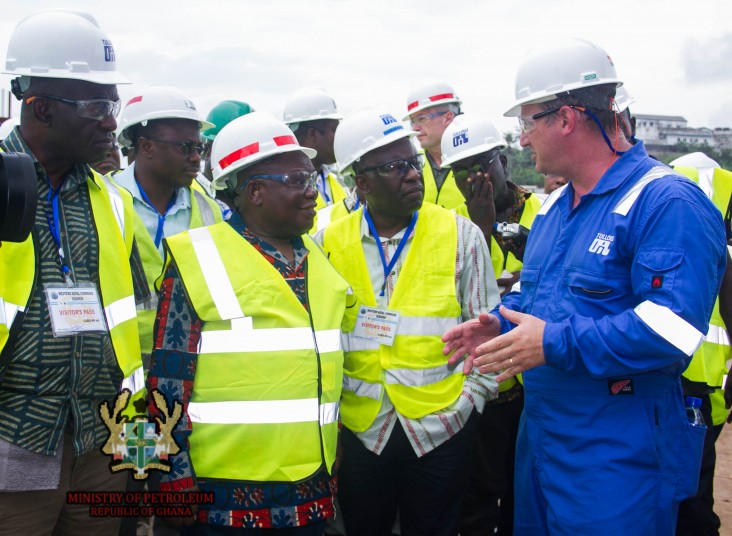- Where We Work
- Interactive Map
- Afghanistan and Pakistan
- Africa
- African Union
- Power Africa
- Trade and Investment Engagement
- Angola
- Benin
- Botswana
- Burkina Faso
- Burundi
- Cameroon
- Central Africa Regional
- Central African Republic
- Chad
- Côte d'Ivoire
- Democratic Republic of the Congo
- Djibouti
- East Africa Regional
- Ethiopia
- Ghana
- Guinea
- Kenya
- Lesotho
- Liberia
- Madagascar
- Malawi
- Mali
- Mauritania
- Mozambique
- Namibia
- Niger
- Nigeria
- Republic of the Congo
- Rwanda
- Sahel Regional
- Senegal
- Sierra Leone
- Somalia
- South Africa
- South Sudan
- Southern Africa Regional
- Sudan
- Swaziland
- Tanzania
- Uganda
- West Africa Regional
- Zambia
- Zimbabwe
- Asia
- Europe and Eurasia
- Latin America and the Caribbean
- Middle East
- Mission Directory
When Honorable Ben Dagadu was a young boy growing up in a small village in Ghana’s Volta Region, electricity was a luxury most lived without. “Each house had maybe one lantern,” he recalled. “Our parents would use the lantern for light when they cooked, so you couldn’t use it to do your schoolwork and study at night.”
Today, as Ghana’s Deputy Minister of Petroleum, Dagadu is one of the leaders of Ghana’s energy revolution. He partners with Power Africa toward the goal of universal access to energy by 2020.

One of this partnership’s main successes is developing Ghana’s fledgling natural gas sector. In 2007, Ghana discovered its first domestic oil and gas supplies in the Jubilee field. Jubilee lies 40 miles off Ghana’s southwestern coast. The field now saves Ghana about $1 million a day in fuel imports.
But it took nearly seven years, until December 2014, for “clean” refined gas to flow from Jubilee to thermal power plants. Power Africa helped develop the infrastructure that enables the transmission of Jubilee’s gas to thermal generation plants. It now produces about 80 million cubic feet of gas per day.
“Supply of the Jubilee gas to thermal plant really increased access to electricity,” said Dagadu. “And it will create jobs and jobs and jobs for our people.”
Now, Power Africa is helping the Government of Ghana to develop another discovery 24 miles east of Jubilee: the Sankofa field.
When fully developed, Sankofa gas will support more than 1,000 MW of generation capacity, increasing the country’s electricity output by 40 percent. It will produce more than 180 million cubic feet of gas per day, enabling Ghana to reduce its liquid fuel imports by 12 million barrels per year and reduce carbon dioxide emissions by 8 million tons. These MW will energize several million new household connections.
Power Africa is providing technical assistance to the Ghanaian government in the development of the $7 billion Sankofa project. Power Africa Transaction Advisors facilitated commercial negotiations between the gas supplier and potential Independent Power Producers and developed internationally recognized gas sales and purchase agreements. Together with the World Bank (a Power Africa partner) and the Ministry of Petroleum, Power Africa is working on a plan to ensure Sankofa gas will be available to supply Ghana’s thermal plants. The project sponsors of Sankofa achieved a major financial milestone in July 2015, when the World Bank approved a $700 million partial risk guarantee and loan package for the project.
“The Government of Ghana doesn’t have a lot of experience in negotiations like these, so even though you don’t see Power Africa at the forefront, behind the scenes their advice and support has been crucial to our success,” said Dagadu. “It hasn’t been easy, but we are very proud that everything is currently on schedule.” Sankofa is slated to start producing its first oil in 2017 and its first gas in 2018.
Power Africa is looking to the future and emphasizing training, mentoring and support for the Government of Ghana. Last year, Power Africa helped the government develop and implement a near-term Gas Action Plan, and this year, it helped develop a longer-term Gas Master Plan. In addition, Power Africa produced a Gas Market Review which projected gas demand, supply and balances until 2030; calculated gas infrastructure requirements and costs; and facilitated improved gas sector planning.
Finally, Power Africa provides frequent trainings on subjects such as gas importing, power purchase agreement negotiation, and monitoring and evaluation.
These trainings are giving Ghana’s government officials and others working in gas the skills they need to successfully manage the evolution and maturation of Ghana’s fledgling gas sector—and to add MW to the grid and electricity connections to homes.
Dagadu says he can now see the impacts of new electricity connections in villages like the one where he grew up. “They have lightbulbs, and children can now study at night,” he said. “Lifestyles have changed around the country. Small businesses are thriving, and even in rural areas, they have refrigerators. Access to electricity is a great thing.”







Comment
Make a general inquiry or suggest an improvement.